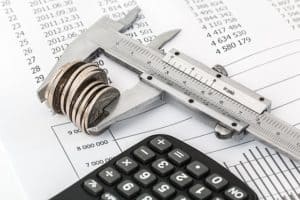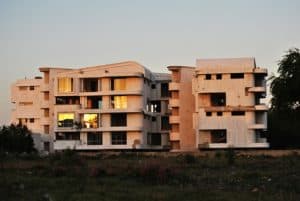Condo property tax is a critical consideration for buyers in Toronto. Precondo provides essential information on this topic.
This article will help you understand your condo fees and property taxes and how they are calculated so you won’t unquestioningly pay the government an amount of money that you don’t necessarily know what for. Let’s get into the details.
Condo Property Tax
Various living expenses are included in the condominium fees. Condo fees typically include maintenance, landscaping costs, emergency repairs, and other building-related expenses paid for. Nevertheless, it doesn’t include property tax. Consequently, you will be required to pay property tax.
The property tax varies greatly based on location and other variables. It can vary throughout the Greater Toronto Area.
When you buy a new condo unit, you should focus on more than just the sales contract. You should also consider your property tax bill, condo fees and maintenance amount.
Every home will have individual property tax information that you may not be accustomed to paying up to if you’ve previously only rented.
Just like the rest of our annual property taxes, your own condo association and property tax is used by the local government to maintain the community’s needs and services. These include services such as garbage collection and sanitation, fire protection, and maintenance of public spaces.
Tax rates vary depending on the area where you purchase. The lowest property tax rate in the city of Toronto is 0.63551 percent.
Orangeville is the highest at 1.40990 percent of the tax. Your property assessment will shed light on the amount of tax you are likely to pay on your residential property.
Naturally, property taxes are a huge consideration for anyone looking to buy real estate in the city of Toronto. You can request and read the property tax documents as you can assess taxes you require.
The property tax involved in condos varies greatly between condo communities depending on their location. For the Greater Toronto Area, property taxes vary based on the exact place of the development.
How Your Property Tax Bill Is Calculated?
Your property tax bill is calculated by considering home values and the education tax amount. Areas like Toronto, Markham, and Richmond Hills generally offer lower education tax amount rates despite higher property values.
In stark contrast, locations like Oshawa and Orangeville have the lowest average home values. Owing to the developing communities, the property tax calculator and bill rates here are very high.
The average home price in the city of Oshawa is about $585,000. It has a tax rate of 1.40690 percent. The annual property tax bill rounds up to $7,249. (1) In Richmond Hills, the average price of a home is twice as much at $1,033,754. However, the property tax rate is much lower at 0.71760 percent.
To calculate property tax, multiply the assessed property value by the given tax rate. The property value and tax rate can vary depending on land use, such as residential use, office space, and several other factors. Property taxes are set in accordance with the individual provinces and cities.
There can be many significant differences among the regional property tax rates. If you are trying to make a decision, keep in mind which province and territory you are choosing. The municipal property assessment corporation website offers some excellent advice on municipal tax rates.
You can also find further information about how property tax is calculated by watching the following video.
Other Taxes: Land Transfer Tax
As mentioned, buying a condo doesn’t end with the property contact and price. In addition to paying the condo property tax, you have to pay the land transfer tax on top of your condo purchase.
The land transfer tax is paid by everyone who agrees to purchase a property, and taxes should be paid within 30 days after the payment transaction for your property has been completed {2}
There are varied land transfer taxes depending on the province in which you live. In cities like Toronto, property taxes on residential properties also differ significantly and include an additional municipal tax. The residential property tax in Toronto stands close to 0.66 percent, according to the Bob Aaron firm.
The taxes are based on the assessed value of a home. You can find out more about property value and taxes by undertaking a property assessment. The more desirable areas of the city of Toronto can significantly differ in terms of condo property taxes.
Benefits Of Owning A Condo
A condominium is a multi-unit property that is sold as an individual unit. If you’re looking to buy a new home, a condo has multiple benefits.
- Tax Efficiency for Common Spaces: No separate taxes for communal spaces when you own a condo; the unit’s assessed value includes common area taxes.
- Simplified Tax Management: Some localities tax common areas separately, but condo associations handle these taxes, simplifying the process for condo owners.
- Affordability in the Housing Market: Condos are becoming a more affordable housing option, with a slower price increase compared to single-family homes, making them an attractive choice for many.
- Lower Property Tax Benefits: The lower market price of condos extends to lower property taxes, offering financial advantages to condo owners.
- Diverse Community Appeal: Condos attract a diverse group of buyers, including investors, first-time homebuyers, and retirees, due to the community and social opportunities they offer.
- Lifestyle Enhancements with Amenities: Amenities like gyms, pools, and sports clubs enhance the condo living experience, contributing to a higher quality of life.
- Shared Investment in Common Property: Owning a condo means shared ownership of common property, blending private and collective investment, and fostering a sense of community.
However, as with all property ownership, condo owners should expect to face some challenges. That’s why it is so important to know the facts before you buy a condo.
Condo Property Tax: The Bottom Line
The property tax rate relies on the market value of the property’s assessed value, square footage and property. For a large city like Toronto, the property tax is comparatively very low. However, there is a municipal land transfer tax and large developmental charges to consider.
Toronto is the primary residence for many working individuals living outside of the city. The treatment of rental property on tax bills for such individuals differs based on non-residency terms. If you rent out your condo, it will be taxed under your personal income.
Keep in mind that the principal residence exemption isn’t allowed if you don’t actually live on the property. This exemption means Canadian residents of commercial properties don’t have to pay any capital gains on the increase in the assessed value of residential homes on the whole property.
Year-round residential condos are something that you should consider as an investor or a new home buyer. It’s vital that before you consider purchasing a condo, you look over all the details first. This cost also includes the costs (such as tax!) involved in purchasing rental property.
It would be best if you also carried out a property assessment. To do this, you should consult the management company or assessment corporation.
If you have any questions about tax rates when buying a condo, contact the Precondo team. Our friendly, experienced team in Toronto, Ontario, would be more than happy to assist you.
Whether you have a question about the down payment or are planning to have single-family homes, contact our team.
References:
1. Dave Flaherty, Strong outlook for Durham housing market, retrieved from https://oshawaexpress.ca/strong-outlook-for-durham-housing-market/
2. Ontario Ministry of Finance, Land Transfer Tax, retrieved from https://www.fin.gov.on.ca/en/tax/ltt/





